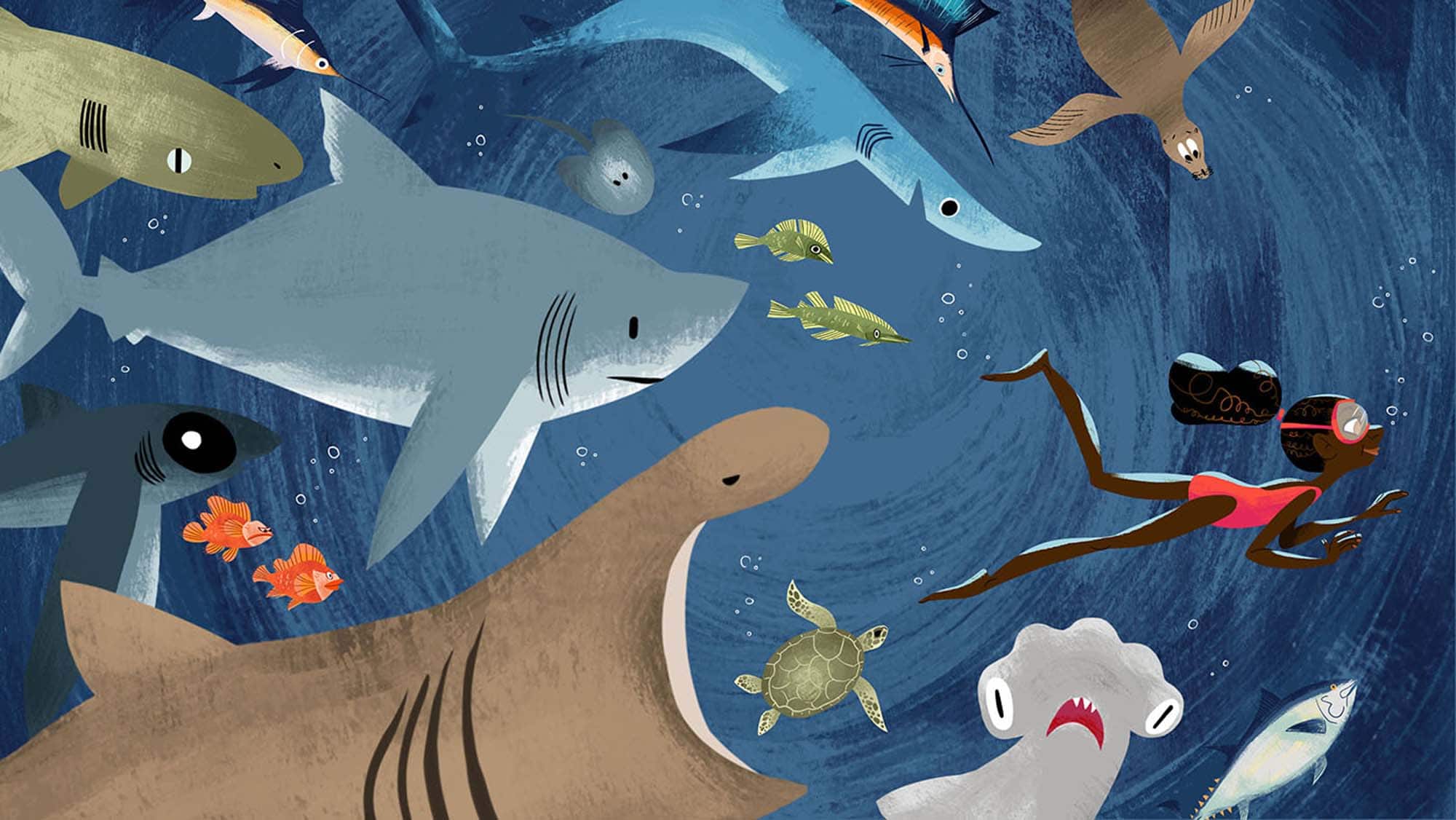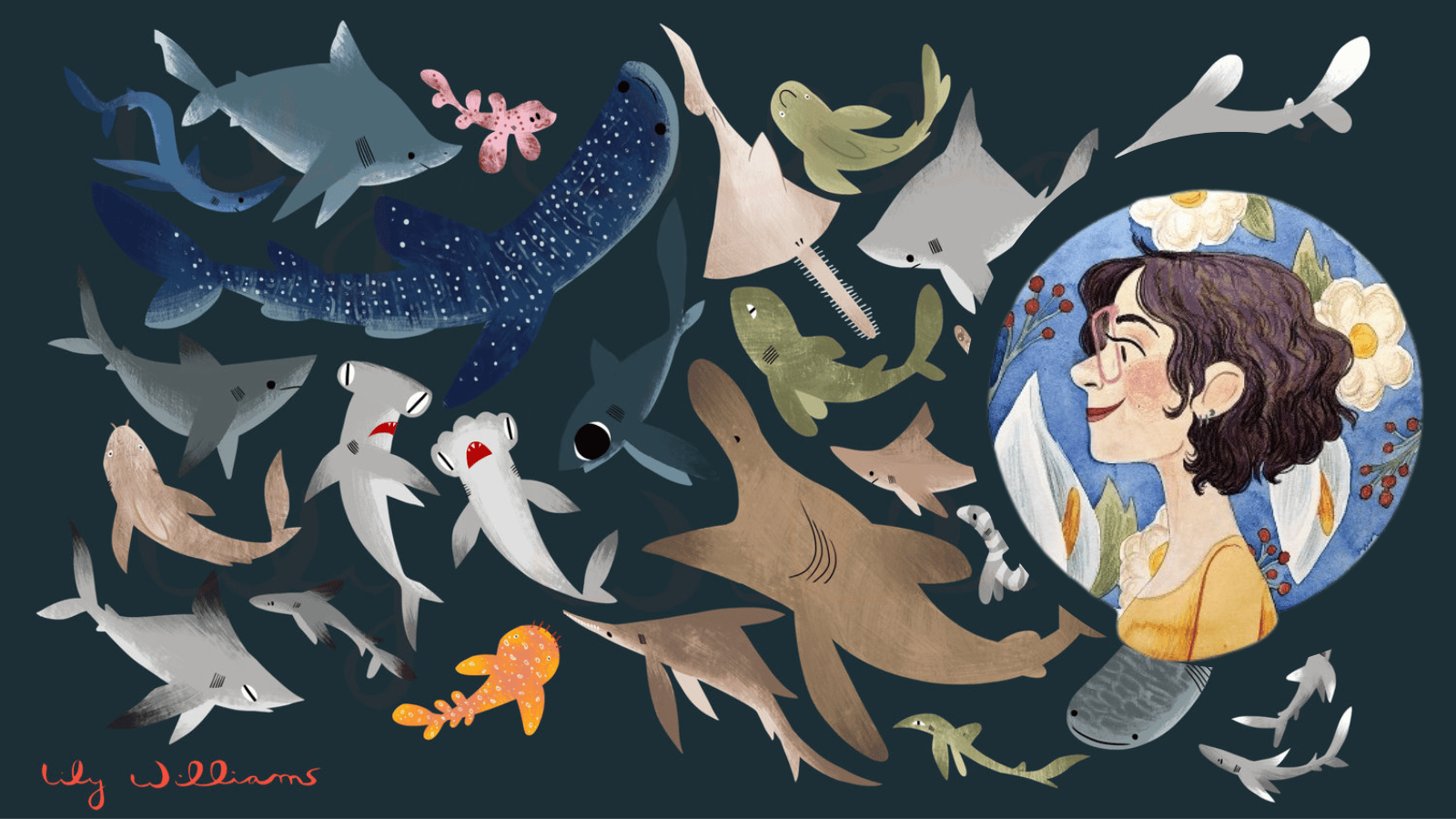Interview with Lily Williams
Director of FINconceivable
Want to learn more about the making of FINconceivable and Lily Williams’ efforts to promote conservation through her art? Check out this interview!
You have brought awareness to all kinds of animals in your book series If Animals Disappeared, what inspired you to start with sharks?
LW: Sharks are one of my favorite animals. After hearing that between one-third and one-fourth of shark species are endangered, I was wondering how I could get people to care about them the way I cared. Everything started with my love for sharks and grew as I grew and learned…which evolved into my nonfiction picture book series, If Animals Disappeared.
What prompted you to focus on wildlife conservation in your creative work?
LW: I always struggled in school and wasn’t a particularly good student. This led me to learn how to teach myself ideas and a lot of that came down to breaking down big concepts into digestible formats. When I started learning about sharks, and then other endangered animals, I realized that there was a very academic scientific way of explaining it and then a way of explaining it very simply to little kids (without substantial information) with little in between. I wanted to create an in between area to educate on these topics in a way that didn’t compromise the integrity of the information, while still making it understandable for kids.
You created a reputation from this film, and in your other work, for tackling serious topics with fun and, as some say, “very cute” animations. Why is this your preferred art medium; do you find that people resonate with animation/illustrations in a way that is different from other art styles?
LW: Thank you! I think when you give people large amounts of information, especially upsetting information, you need it to be delivered with a sense of childlike wonder. If my large sentences about the trophic cascade, ecosystem destabilization, and biodiversity were illustrated by realistic animals, well, the information would be much scarier. I try to make it all feel approachable.
The majority of your work seems to be educational at its core (wildlife conservation, reproductive health, mental health). Was fusing education into your work something you were always drawn to when you first began illustrating?
LW: Definitely! Though I didn’t always know how and did a lot of unsuccessful fusing of education into my art, practice really does help you get better at things. I think that the world is better when we have access to information presented in different ways for different learners.
Are you thinking of turning any of the If Animals Disappeared books into short films, similar to what you did with FINconceivable? If not, are you working on any new animation projects?
LW: I think If Animals Disappeared has a lot of potential for something animated, for sure. It could be a cool educational show. Who knows! Right now I’m focusing mostly on my upcoming books but there’s always room for more creative avenues in which to get this information out.
What has surprised you most about the reaction to FINconceivable since its release? Has it led to any interesting avenues you were not expecting?
LW: The most surprising thing to me about FINconceivable is that it’s really lived a life I could not have imagined. I had hoped to put it online and have people watch it but it’s since been in film festivals from all over the United States to the UK to India. To this day, it’s still watched regularly on my website. I could never have anticipated the reach, but I know it’s made a positive change to individuals and on larger levels I’ve been told it’s been used as an aid to get legislation passed. So there’s no telling what your work can do!



